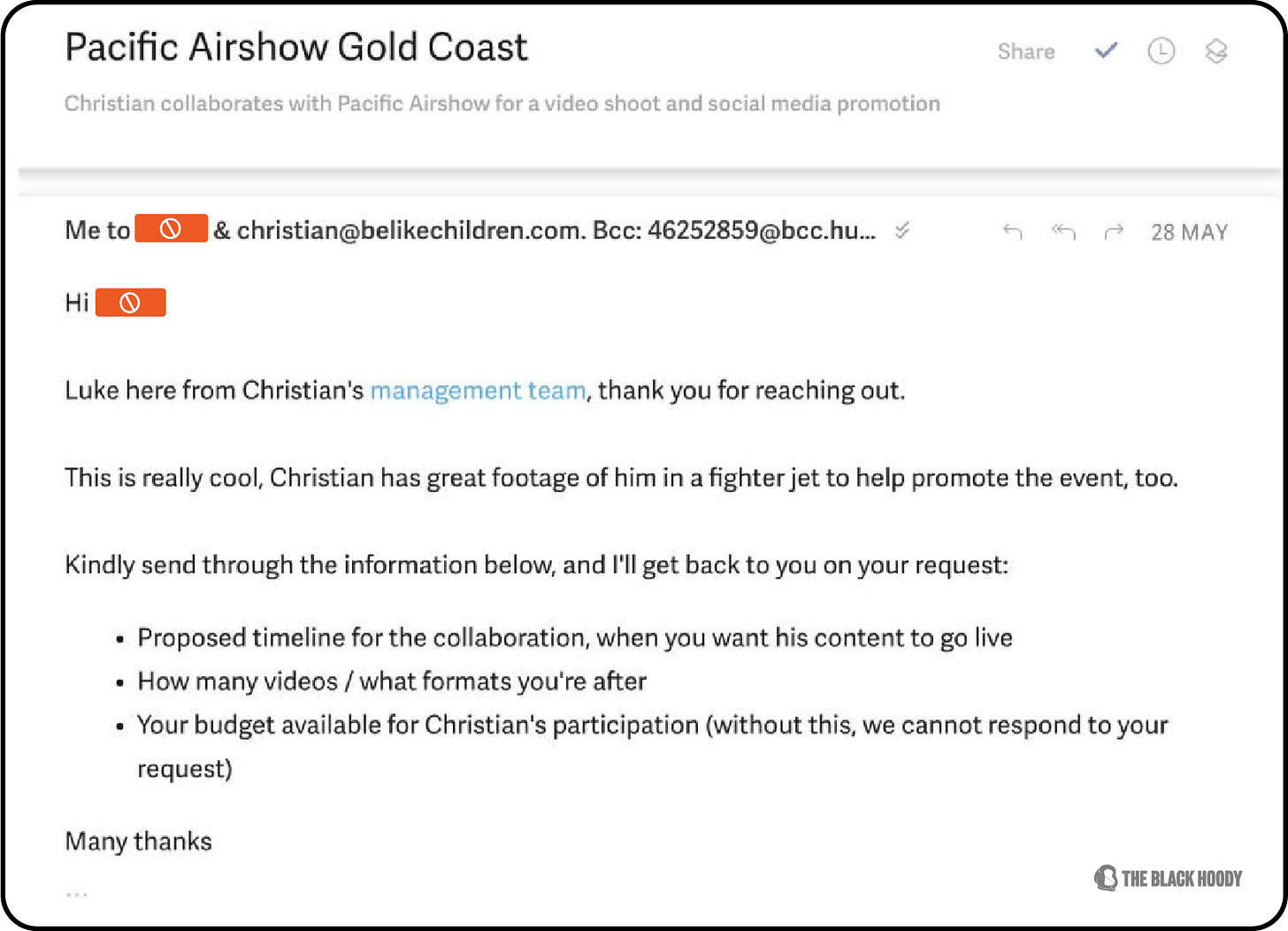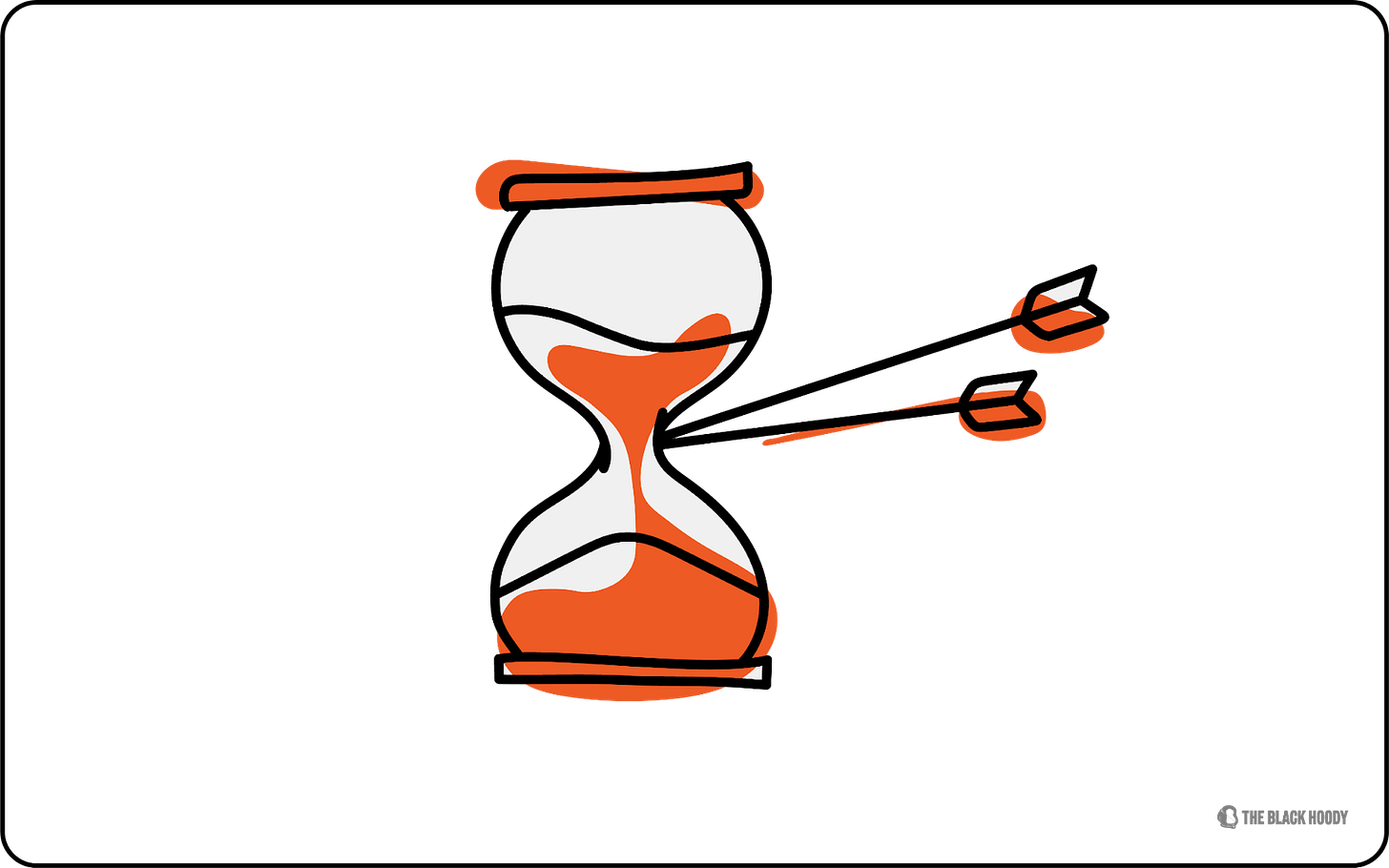How Artist Managers Should Use AI
Talent management is a war on your time, and now you can finally win it.
17 years in, and I finally cracked the code. I’m winning my time back as a talent manager.
Talent Management Is A War On Your Time
It’s the only business I’ve run in which I find it impossible to work “on the business” rather than “in the business.” Most talent management firms that scale either don’t work on strategy with their clients (they basically become a brand or booking agency) or they open up other services that can scale, like becoming a record label.
Artists and creators pay their managers a commission of all their earnings in exchange for their brains at each moment, so a manager must be across everything. Talent managers respond to most emails, attend every meeting and are on every call. This is why talent management is nearly an impossible business to scale if you want to do the job well.
You can indeed hire day-to-day managers to help with the emails, calls, and follow-ups, but that’s hardly “scaling” by any other industry standard — it just frees up the manager’s time a little bit.
I’ve spent nearly two decades running my management firm with a lean roster and strong margins, and only since the invention of AI, do I feel like managers can actually start to win the war on time.
Simone Giertz, inventor on the Be Like Children roster
Here is the tech stack and some use cases I have implemented at Be Like Children to show how you can finally win the war on time:
Superhuman - $33 USD / Month
The first battle in the war on time - your inbox
Superhuman is an email client built for speed. I pay US$33 monthly for this thing, and I’d pay double if they asked. Here’s why:
Speed: If you master the Superhuman keyboard shortcuts — which are easy and intuitive — you’ll shave hours off your inbox time every week.
Snippets: About 30% of emails are low-IQ, repetitive emails that hit your inbox multiple times a day asking or enquiring about similar things, so you shouldn’t waste more than a few seconds on each.
Enter Snippets.
Superhuman lets you save pre-written responses — essentially templates — for those inevitable, repetitive emails that hit talent managers’ inboxes. In two clicks, you select the Snippet, it populates the email, CCs the right people, and you’re done. No brainpower or time is required.
Here’s the kicker: using these ‘canned replies’ for sponsorship enquiries actually increased my close rate on deals. As it turns out, a proven formula outperforms all those time-sucking “personalised” responses I used to think were charming.
Here are two examples of Snippets I have:
Public speaking request
And here is Simone on stage at Config 2024
Here’s the template response, or Snippet, for inbound sponsorship requests
As you can see, I did actually add one line about Christian’s experience with this particular category for context.
And here’s a hilarious video of Christian regretting taking on this partnership:
Reminders: Set it, forget it. Automate your follow-ups so you can stop mentally flagging every email that needs a reply or follow up. Superhuman’s keyboard shortcuts make setting reminders fast and easy.
AI Search: Superhuman has AI search. Watch this demo, and then tell me you’re not willing to pay for faster, smarter inbox searches:
Claude AI - $20 USD / Month
Win the war on time and legal expenses
Here’s a little secret: I no longer use lawyers for deals under $20k. Why? Claude AI.
This tool reads legal documents like a seasoned paralegal, highlights what you should push back on, explains complicated clauses, and even drafts responses for you. It’s not just a time-saver — it’s a cost-killer.
Of course, all the talent on my roster have approved of this practice, and I’ve saved them tens of thousands in legal fees over the past few months alone. You know that small $5k deal you passed on because the legal costs would swallow your margin and take too much time to review? Claude makes those deals possible again.
Check out an example prompt from my Claude account below:
You often need to go back and forth with Claude several times per agreement — asking it to clarify details, fix formatting for easier copying and pasting, and so on. I advise you to keep engaging with it and experiment with different ways of phrasing your requests as the model improves.
Note: If you’re a new manager with just a few years experience, I think you should still use a lawyer. Lawyers are the best teachers and they’ll help you learn and understand contracts, if you ask them. The first 5 years of my management career were a legal education; I treated our lawyers like my legal tutors.
But that’s not all Claude is great at. It’s also a surprisingly good creative partner. Check out how health tech founder Presh Dineshkumar used Claude to build his personal website (and yes, full disclosure, I just invested in his company):
Mind blowing 🤯
In another example below, journalist and analyst Cherie Hu called Claude 3.5 sonnet “actually CRAZY”:
Chat GPT - $20 USD / Month
You’re the dumbest person in the room — here’s how to fix that
John Watson — who is in my view, Australia’s best artist manager — nailed it: “As a manager, you are always the dumbest person in the room”.
The label knows more about records than you do. The promoter knows more about touring. The publisher knows more about publishing. Your job is to manage them all without being the expert in anything. Enter ChatGPT.
Every manager should have a paid ChatGPT account on their phone’s home screen and desktop. It’s the easiest way to get complex ideas explained to you in simple terms and it offers answers to questions that I otherwise would have had to call an experienced industry friend to understand.
It also helps me with:
Building out draft business plans or helping me plug holes in established ones
Pitch decks
Spreadsheet analysis
Creating charts and visualisations from spreadsheets
Perplexity AI - $20 USD / Month
Too good to be legal?
Let’s not kid ourselves: Google is an ad engine that occasionally provides search results.
I didn’t realise how time-consuming Google was with each search before I started using Perplexity AI. Scrolling past ads, clicking in and out of pages until I found what I was after… Perplexity cuts all that out.
Perplexity doesn’t just answer questions, it gives you the receipts, e.g. references, links, summaries, and sources. It has the ability to ask deeper follow-up questions too. Google search can’t compete.
The power of this tool might not last forever, though. In fact, it’s probably too good to be legal, as Morning Brew pointed out in their sketch:
Todoist - $9 USD / user / month for the plan I’m on
Not (much) AI, but will save your brain
Do you receive constant group chat notifications and endless SMS pings from talent? They don’t just drain your time — they chip away at your mental health.
As a young manager, I thought being available 24/7 was the key. I jumped into every group chat, ready to respond to every half-baked idea or random thought that popped into a band member’s head. It was chaos. My day became a reactive mess, and I was getting nothing done.
Then I found a better way: Todoist.
Here’s the system I built:
WIP Board: Any topic we need to discuss goes here. Whether it’s me or the talent, it gets added to the board and we hash it out during our weekly meeting. This stops the never-ending ping pong of messages and prevents me from jumping on every minor issue during the week.
Activity Board: Every gig, content plan, or media appearance is tracked here, with contracts and details attached. No more “What’s next?” or “Where’s this?” texts.
Project Boards: Each talent gets their own board for their individual projects, making it easy to see what’s in progress and where we need to focus.
Todoist isn’t about shutting out talent, it’s about setting boundaries so you can actually be a manager, not a reactor.
Hubspot - pricing depends on the features you want; I pay AU$123 / month
Sales tracking the fastest, easiest way
HubSpot is a CRM. That’s it, that’s the headline. After trying a laundry list of deal flow tools, I landed on HubSpot for one reason: it’s the cheapest option that does everything I need. Done.
Bottom line: If you’re still managing talent like you did five years ago, you’re almost definitely losing the war on time.
AI technology is no longer a fun toy or gimmick; we’re way past that.
Win the un-winnable war, and invest in tools that save you time, money, and mental bandwidth.
If you have any questions about how I use these tools or want me to explain them further, please ask in the comments.
And, of course, if you recommend any tools not mentioned here, let me know.



















Have you found anything that helps with the data driven A&R that’s better than DIYing through chart metric or similar?